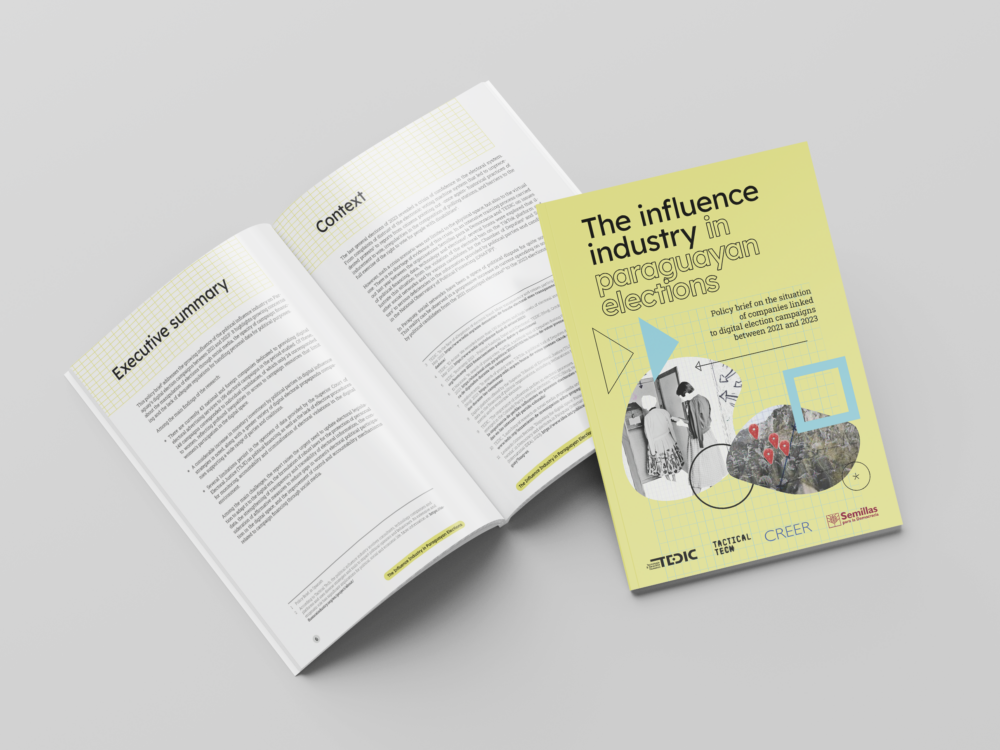
From TEDIC, in collaboration with Tactical Tech, we delve into the complex and unexplored scene of digital campaigns during election times in Paraguay through our recent Policy Brief “Influence Industry”. This document is approached as a political report that seeks to highlight the growing concern about election manipulation through social media,the opacity in campaign financing and the lack of adequate regulations for the management of personal data with political purposes.
The research that gave rise to this document revealed that between 2021 and 2023, 43 national and foreign companies were involved in providing digital propaganda services to 156 electoral campaigns in Paraguay. This number includes 148 individual campaigns, of which only 24 were led by women, indicating not only a growing dependence on technology in politics but also deep gender inequalities.
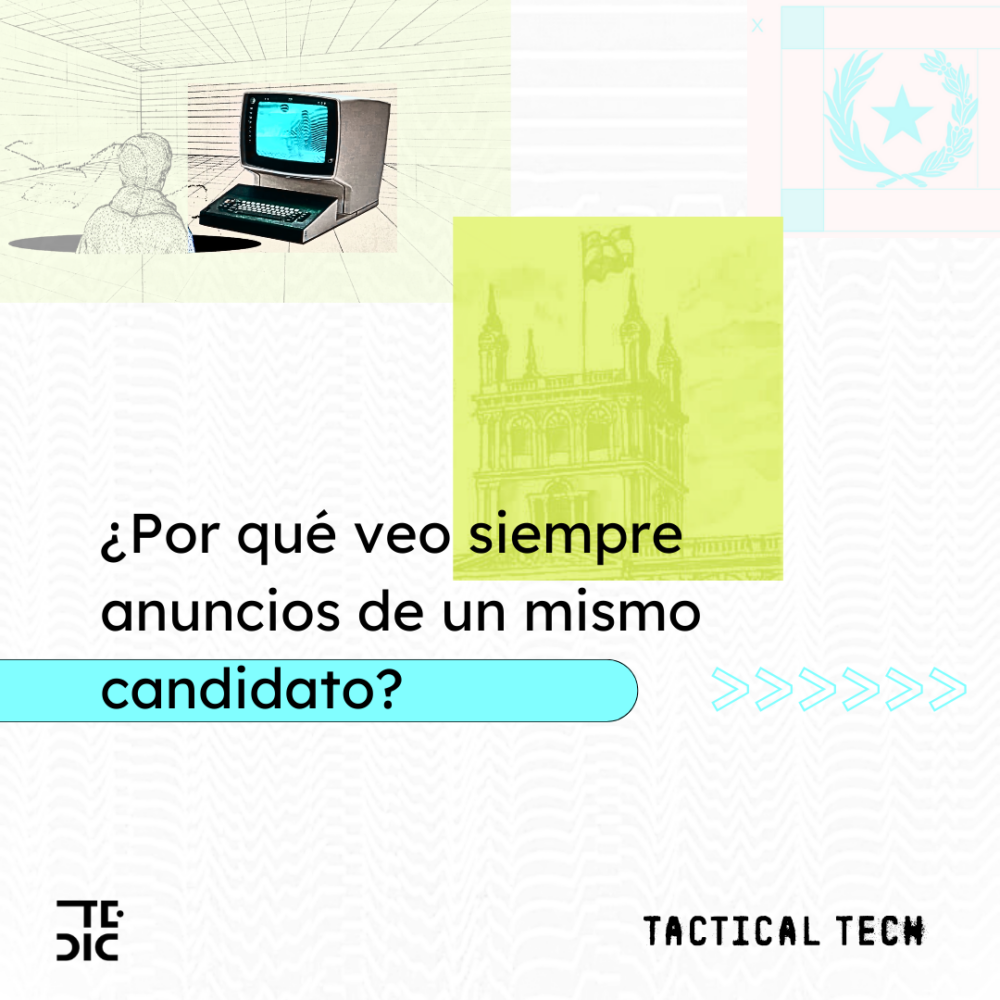
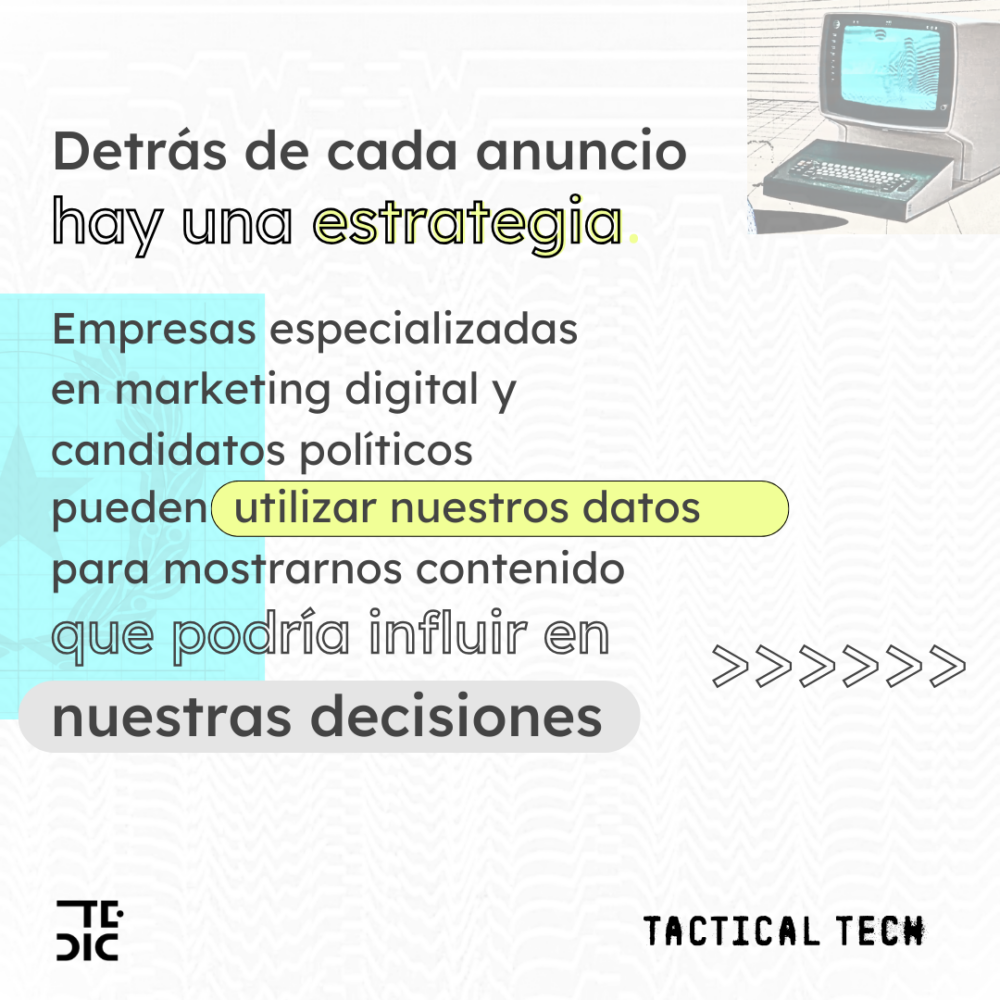
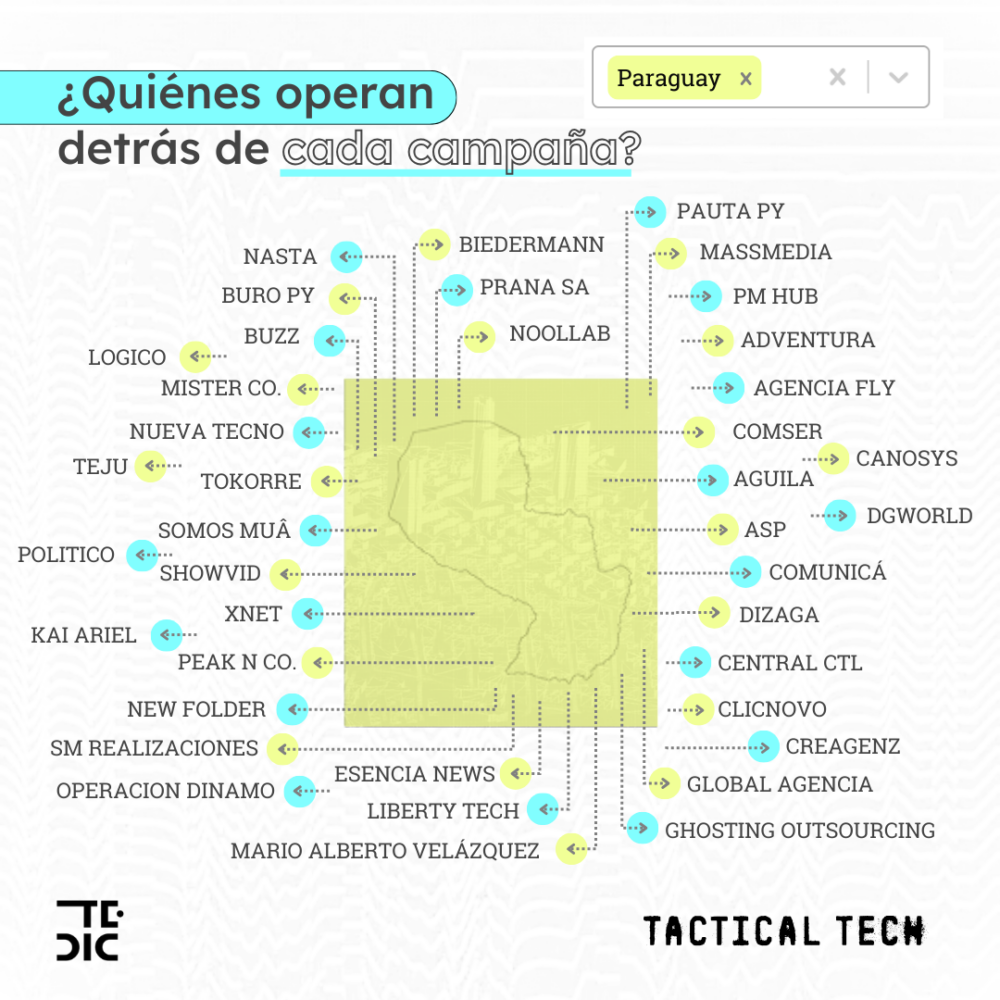
Furthermore, the increase in investment in digital strategies by political parties, and the opacity in financing and the lack of adequate regulation on the use of personal data, have been contributing to a crisis of confidence in the Paraguayan electoral system. This scenario is further complicated by the lack of effective procedures for monitoring and accountability, particularly in the digital environment.
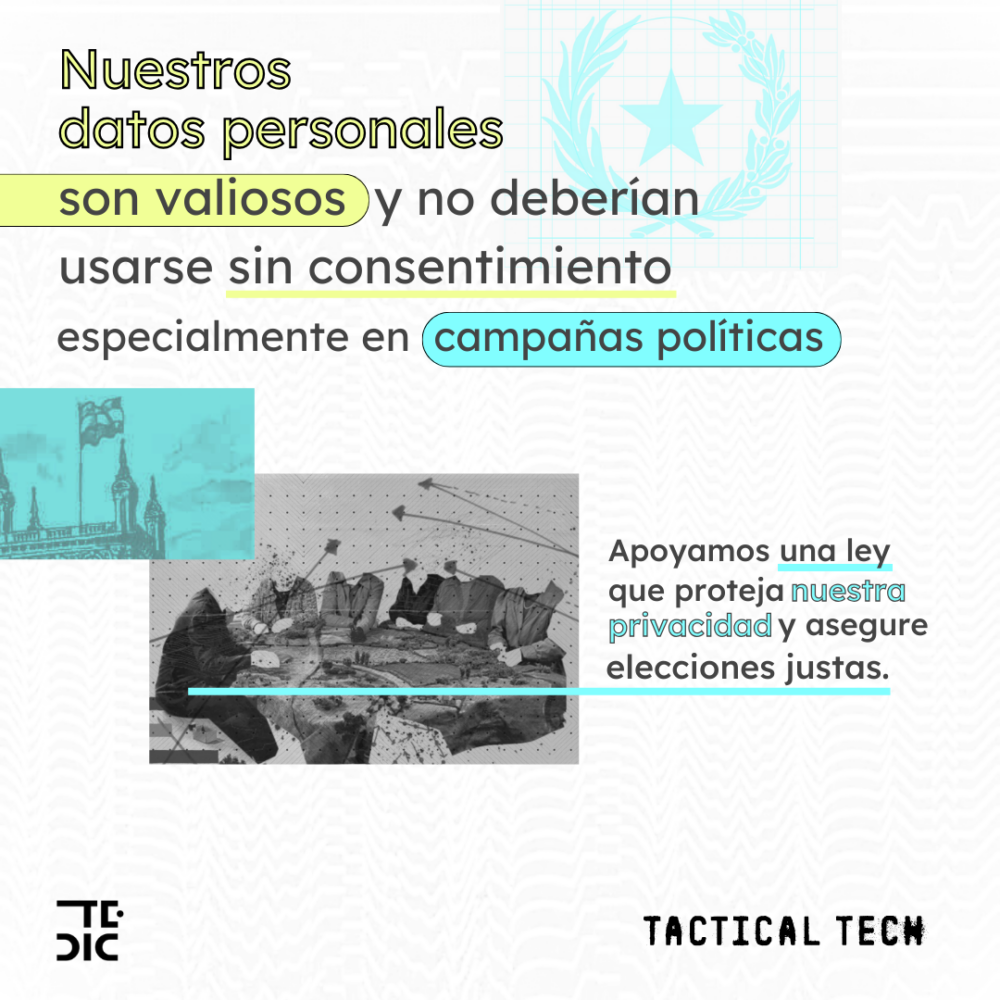
One of the most alarming findings of this document is the limited openness of the data provided by the Superior Electoral Court (Spanish acronym: TSJE) regarding political financing.This lack of transparency underlines the need for an urgent update of electoral legislation to adapt it to the current digital era, including solid protection of personal data and the improvement of transparency and accountability mechanisms.
The need for electoral reform is urgent. This has even been recognized by the Superior Electoral Court itself, which recently announced the introduction of a package of legislative reforms for the new parliamentary term of 2024 and highlighting issues such as the inclusion in the electoral roll of unconvicted prisoners, the use of dark boxes and plastic ballot boxes, modification of electoral deadlines, the introduction of biometrics for voter identification, a digital ethical pact, among others.
Such a desire for reform is worthy of highlighting. However, it must be carried out from an evidence-based approach that also incorporates issues such as oversight of advertising expenditure on social networks. What has just been pointed out shows a series of gaps and needs, but also a path forward with a view to strengthening the current electoral scenario and with a view to generating greater reliability and trust towards the electoral system and its institutions.
Recommendations for a more transparent future
In response to these challenges, the Policy Brief proposes several recommendations:
- Improving transparency: Promote alliances with digital platforms to implement cross controls on investments in campaigns, ensuring uniformity and veracity.
- Detail electoral propaganda services: Require detailed descriptions of digital services to be published, including the use of data and segmentations.
- Inclusion and gender equity: Establish effective measures to improve access to digital resources for women candidates and underrepresented communities.
- Data protection and transparency legislation: Urge government bodies to enact a comprehensive law on personal data protection to regulate the collection and use of data by political actors and companies.
- Cybersecurity and access policies: Implement policies to ensure secure and continuous access to electoral information, especially for overseas voters.
- Tools for data consultation: Suggest that ONAFIP have a public API for data queries and extractions, facilitating more effective access to electoral information.
- Access to digitized public information: Include download options for relevant documents, thus improving transparency and control by citizens.
This analysis and the proposed recommendations aim not only to emphasizes current challenges but also to offer concrete solutions to ensure that future elections in Paraguay are fairer, more transparent, and free from undue influences.
Get to know the industry
The data collected, with the description of each company involved in Paraguayan electoral processes, the source where the information is available, and the volume of investments, can be found in the Explore section of the Influence Industry page, developed by Tactical Tech.
On the site, data can be filtered by country, category, and even searched by company name. The data can be exported, allowing more researchers to carry out public oversight tasks. The website also provides details of the methodology used, as well as relevant case studies from other countries.
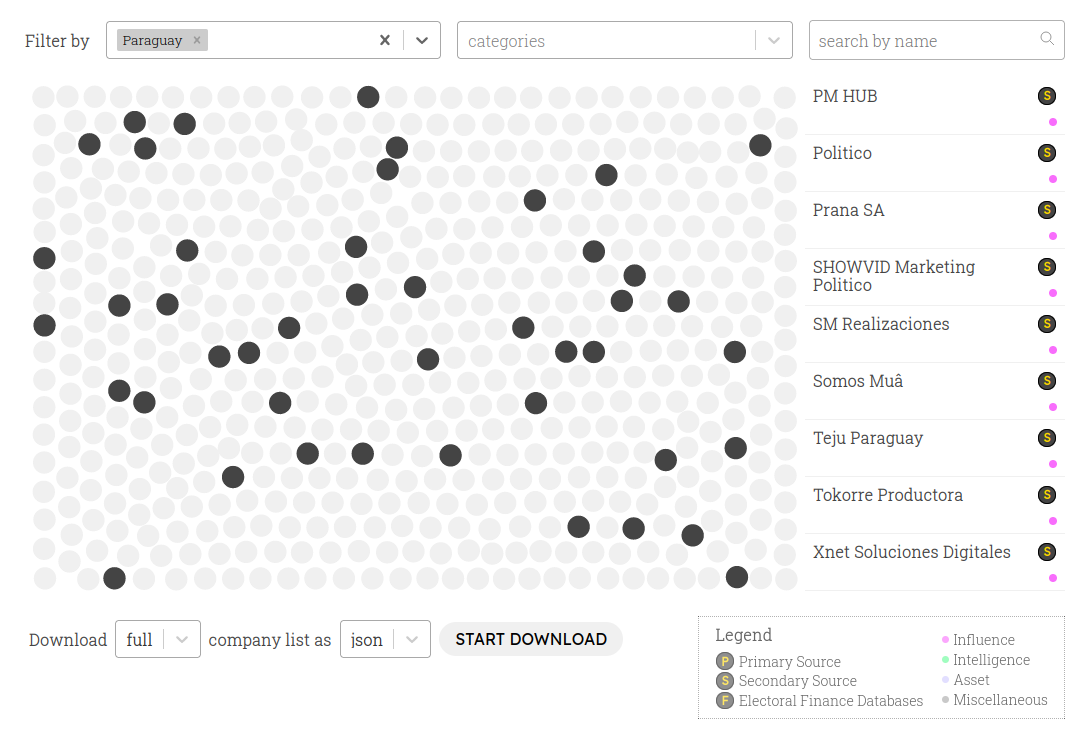
Call to action
We invite everyone interested in democracy and electoral transparency to download and read our Policy Brief “Influence Industry” to better understand these challenges and join the path towards significant reforms in our electoral system.
You can access the full report here.
